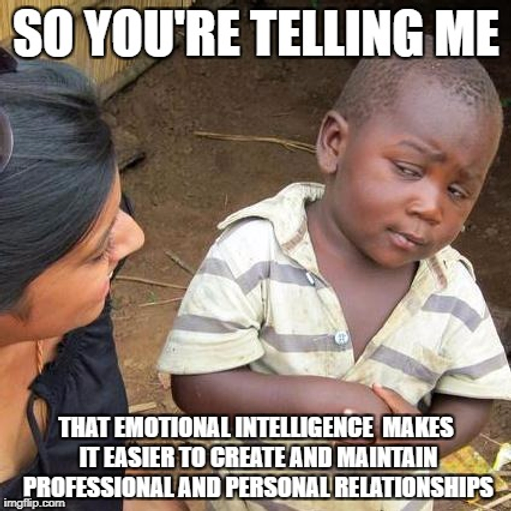Do you know any kids from school who used to score solid A+ in their report card but couldn’t manage friendships or relationships? One would look at them and feel how they must have the best of everything. Eventually, when they completed their education and entered jobs, they couldn’t manage, despite having an ideal report card. At this point, one might ask, what could’ve made the difference?
YES! Emotional Intelligence is the key!
Like Aristotle said, “Anybody can become angry – that is easy. But to be angry with the right person and to the right degree and at the right time and for the right purpose, and in the right way – that is not within everybody’s power and is not easy.” That is pretty much what Emotional Intelligence is. The concept of emotional intelligence tends to combine the two aspects, i.e., emotions and intelligence. To say in simple words, it would mean to be emotionally intelligent and intelligently emotional.

YES!! That is true. Research confirms that emotionally intelligent people tend to be better at their jobs and relationships. People with higher emotional intelligence report more positive interactions with other people. A study conducted with Yale undergraduates relieved that high EQ was related to lower self reports of depression and anxiety and higher overall satisfaction with college.
Now that we know so much about Emotional Intelligence, let us learn about a few ways to improve our EQ!
1. The Emotions Journal

Journaling has been proved to be one of the practices that enhances our well being. Writing down your emotions after every 4 or 5 hours lets you identify what you may be feeling. What is important here is that instead of writing, “I feel happy,” narrow it down to a more specific emotion, “I feel comfortable,” or “I feel relaxed.” This would also help you to enhance your emotional vocabulary.
2. “Acting as If” You Were Emotionally Intelligent for a Day.

Think about the people in your life who manage their emotions very well. Make a list of these people and informally rank them from good to best in terms of their emotional intelligence. When faced with problems or opportunities to excel, ask yourself, “What would my emotionally intelligent role model do in this situation?” and then do it! At the end of the day, identify the top three emotional skills you acted as if you. In the days that follow, use the three skills again and again until you feel like you have mastered them.
3. The Buoyant Grandparent Visit.
Identify your most resilient or most buoyant family elder and ask this person, “What’s important to you these days? What helps you to be in the moment? How do your friends figure into your daily life?”
4. Empathetic Listening
We have always been taught about how important it is to talk about our feelings and emotions. What is equally important is listening. Listen as if the other person knows something that you do not. Most of us just listen to respond. “Empathetic Listening” is considered one of the most effective forms of listening.
- Listen
- Repeat what you have understood
- Tell your feeling about it
5. Be honest with yourself
Whatever you do, be honest with yourself. It is a prerequisite for self-improvement and evidently for a higher emotional quotient. Take time to reflect on your day every night, non-judgmentally. Ask yourself, “What could I have done better?” Be honest with your answers. Admit it when you make a mistake, we all do. It is also essential to remember that honesty takes time.
6. Empathize with other
Empathy is often considered one of the pillars of Emotional Intelligence. When we empathise with someone, we put ourselves in their shoes and feel what they may be feeling. This in turn helps us to relate better to people in a nonjudgmental manner.
7. Look for the silver lining

In a study conducted in 2011, it was found that optimism and emotional intelligence are highly correlated. This means that as optimism increases, so does emotional intelligence. You may ask, can optimism be learnt? The answer is a resounding YES! Optimism can be acquired. According to Harvard University, you can practise optimism by focusing on the positive (Writing down good things in your life, the things you enjoy), eliminating the negative (Being aware of the negative thoughts and diverting yourself by doing something you like, for example, listening to music, cooking, painting) and acting locally (Instead of worrying about global poverty, donate some clothes to a local NGO.)
8. Read books on Emotional Intelligence

Reading is always a good way of educating yourself. A lot of literature has been written on Emotional Intelligence over the past few decades. Our recommendations:
- Emotional Intelligence: Why It Can Matter More Than IQ by Daniel Goleman
- Working with Emotional Intelligence by Daniel Goleman
- The Emotionally Intelligent Manager by David R. Caruso and Peter Salovey
While emotional intelligence is not the panacea for all of the problems in life, it does make things a lot easier. People with high EQ have more fulfilling social interactions, they tend to identify and manage their emotions better. They recognise the feelings of others and are able to empathise. Given all these benefits, let us strive for being emotionally intelligent beings!




